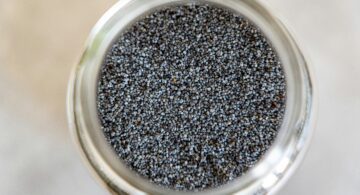The Eating Plan for Managing Fibromyalgia
What is Fibromyalgia?
Fibromyalgia is a common syndrome, not a disease, in which people experience long-term, body-wide pain and tender points in joints, muscles, tendons and other soft tissues. Fibromyalgia has also been linked to fatigue, sleep problems, headaches, depression, anxiety and other symptoms.
Since it is not necessarily caused by any one problem, fibromyalgia sufferers will benefit most from an overall healthy and balanced diet.
Eating Plan for Fibromyalgia
While there may not be a single set of dietary guidelines that are right for all fibromyalgia sufferers, there are certain foods, or food groups, that appear to make a difference for a significant number of people.
As important as sticking to a balanced diet and choosing foods wisely is, when dealing with fibromyalgia it is even more important to not choose the wrong foods. Certain foods and drinks could be causing you more pain then you can make up for by eating right.
It will take some trial and error to find what helps and what hurts, but with a little planning and diet management you can be on the road to managing your fibromyalgia.
Foods and Beverages to Avoid:
- Alcoholic beverages
- Artificial Sweeteners such as aspartame (NutraSweet) and saccharine
- Carbonated beverages such as colas and soda pop
- Coffee and caffeinated teas
- Dairy
- Food Additives such as preservatives, salt and MSG (monosodium glutamate)
- Fried foods
- Fructose
- Gluten
- High fat dairy foods
- Nightshade Plants such as tomatoes, chili and bell peppers, potatoes, and eggplan
- Red meats (especially salt cured, cured bacon, smoked, or nitrate cured)
- Simple carbohydrates
- Some acidic foods
- White flour
- White sugar
- Yeast
Control Inflammation
In many cases, inflammation is the leading cause of the underlying symptoms that lead to your pain. Like any inflammatory diet, people who suffer from Fibromyalgia Syndrome should limit intake of foods that are associated with typical allergies (gluten, milk, peanuts, shellfish and wheat). It is also important to add omega 3’s, antioxidants, lean proteins, fiber and water. These foods will help restore your immune system and help reverse chronic inflammation.
The Fibromyalgia Diet should be very similar to one used for any standard heart healthy diet. This balanced diet should consist of foods that are low in saturated fat, sodium and nitrates, and full of lean meats, fresh fruits and vegetables. Since there is no direct cause of fibromyalgia pain, a heart healthy diet will provide benefits to your overall health by aiding in lessening some of the underlying issues that cause your fibromyalgia pain.
Magnesium Deficiency
Magnesium is an often forgotten mineral that can cause ailments when the mineral is lacking or deficient, including fibromyalgia. Magnesium is known to regulate or inhibit many nerve receptors, which have been considered as sources of certain types of fibromyalgia pain. Magnesium may also help Myofascial Pain Syndrome.
Another commonly found condition in fibromyalgia has nervous related symptoms is reactive hypoglycemia. Anxiety related symptoms occur after carbohydrate intake, and this is believed to be due to either an excess release of adrenaline, or a higher sensitivity to adrenaline. In either case, a deficiency of magnesium could be a factor, as magnesium deficiency appears to associated with anxiety and high levels of adrenaline.
Not only that, but magnesium also affects carbohydrate metabolism in a different manner, as a magnesium deficiency appears to create resistance to insulin. Additionally, insulin resistance by itself can disrupt intracellular magnesium levels.
Sleep deprivation can also lead to low magnesium levels, which also decreases exercise tolerance. But, magnesium supplementation may be able to raise that tolerance.
Magnesium Absorption
Diet and digestion play a major role in magnesium absorption. Oftentimes, people with fibromyalgia have other conditions such as Irritable Bowel Syndrome or gluten intolerance, which limit nutrient absorption.
You can, for one, decrease the antagonists that inhibit magnesium absorption, such as:
- Excess dairy
- Coffee
- Tea
- Alcohol
Also, avoid multivitamin pills that do not contain any magnesium. Magnesium is often not included in multivitamin pills due to a lack of space – so the manufacturers often just leave it out. If you feel the need for supplements, usually powders or fortified snack bars are more likely to have appreciable amounts of magnesium, but you still have to check the labels to make sure. You can also avoid eating too many fortified cereals as they often have an unbalanced mix of artificial vitamins and minerals and seldom contain any appreciable magnesium.
While too much fat in the diet can be unhealthy, eating at least some fat along with your meals may help improve magnesium absorption. Many major magnesium deficiency symptoms (twitches, fibromyalgia, muscle cramps, etc.) develop on a low fat diet to lose weight.Dietary sources of magnesium include whole grains, certain nuts and seeds, cocoa, green vegetables, seafood, brown rice, and kidney and lima beans.
Natural sources of magnesium can be found in almonds, cashews, Brazil nuts, baked beans, molasses, and dark green leafy vegetables. Vegetables are especially good if you are watching your weight because you can ingest a lot of magnesium for a relatively small number of calories.
The Recommended Daily Allowance (RDA) of magnesium is 400mg, but if this level relieves any symptoms for you, you may benefit from more … and of course you get some from food.
Conclusion
Different foods affect each individual fibromyalgia sufferer differently. You can discover your own food sensitivity by eliminating foods that trigger pain and anxiety. Keeping a food journal will be one of your golden keys to keeping the pain and fatigue away. In your journal write down everything that you eat, do and anytime you have fibromyalgia pain. By comparing the two you may discover that certain foods are causing you your pain.
The muscle weakness, fatigue and pain that is experienced could definitely be, in part, due to such severe magnesium deficiency that the muscles are in a constant state of spasm. Every study that has used magnesium has shown across the board improvements in the pain and fatigue associated with fibromyalgia. Monitor you magnesium levels to avoid the antagonists that drain your bones of this necessary nutrient.
While this mineral is no cure-all by any means, magnesium has been shown to relieve muscle pain and fatigue in individuals with fibromyalgia. This fact alone makes giving magnesium worth a try.
Recipe: Edamame-Ginger Dip
Edamame (green soybeans) are a perfect fibromyalgia food because they are a lean protein source and a great source of magnesium.
Ingredients
- 8 ounces frozen shelled edamame
- 1/4 cup water
- 2 tbsp low-sodium soy sauce
- 1 tbsp minced fresh ginger
- 1 tbsp rice vinegar
- 1 tbsp tahini (sesame seed paste)
- 1 clove garlic
- 1/8 teaspoon salt
- Hot pepper sauce to taste – optional
Preparation
- Cook edamame according to package directions.
- De-shell edemame.
- Purée the cooked edamame, and rest of ingredients in food processor until smooth.
- Chill for 1 hour before serving.
- Serve with rice crackers or vegetables.














